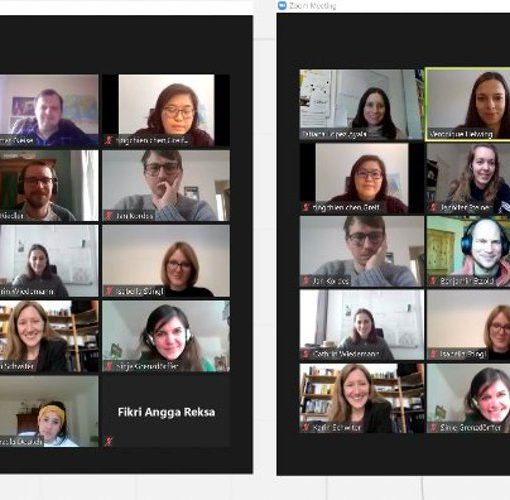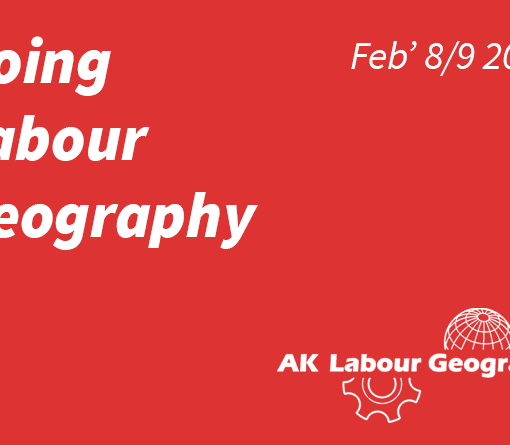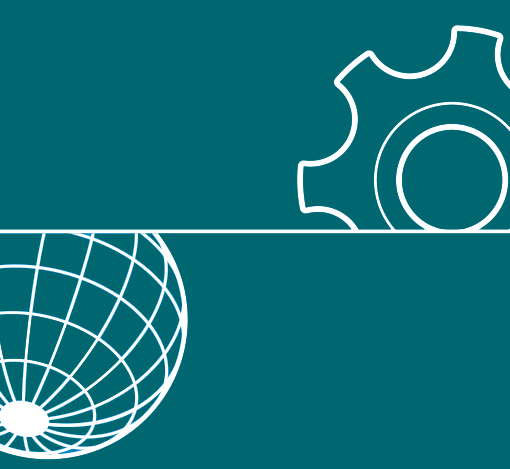On February 07, 2020, 30 geographers and scholars from related disciplines responded to the call for the establishment of a working group ‘Labour Geography’ of the VGDH. After intensive discussions, the working group was established and its spokesperson team was elected (consisting of the authors of this report). It was decided to hold an annual meeting of the working group in the second week of February and to regularly present a panel on topics of Labour Geography at the German Congress of Geography. The next meeting of the AK Labour Geography will probably take place in Gelsenkirchen on February 11 and 12, 2021.

But what exactly is Labour Geography?Why do we use the English term for a working group in German-speaking countries?
About two decades ago, Andrew Herod (1997) coined a fundamental change in the geographic examination of labor with the foundation of ‘labor geography’. In economic geographic approaches, which have dominated until then and partly until today, labor and workers were and are regarded either from a neoclassical perspective as factors of production or from a Marxist-regulationist perspective as objects of state and capital interests. Labour Geography, on the other hand, focuses on working people as geographically active subjects. ‘Labour’ in this context has three connotations that we do not want to overlook: Labour as a labor process (labor), Labour in the sense of working people (workers), and Labour as a collectively acting actor (workers movements). All three aspects are essential in the production of space and therefore reason for the naming of the working group.
With this change in perspective, questions about the spatial dimensions of economic, social, and political processes arise differently than usual. For example, work “places” are not simply a functional location for the company.Rather, they are embedded in social relations, networks, and spatial structures generated by workers’ own actions. Technologies and organizational processes, working time and shift models, the (often patriarchal-hierarchical) patterns of functional division of labor – all these elements of work “places” are never purely set by capital, but are always the subject of manifold struggles carried out by workers as subjects.The same applies to the question of where and how global business locations, clusters or logistics centers emerge and develop. From a labor geography perspective, global value chains become chains of spatially linked and obstinately acting groups of workers. These produce the value that is created. Against this background, the feminization of labor is not only to be criticized as a more effective exploitation strategy of capital, but it may also open up new resources for action to challenge patriarchal and sexist practices within the labor movement and for an expansion of the social concept of labor.
Of course, there is a whole series of open questions and theoretical building sites.At our founding meeting, we started a discussion about this.In the context of an action café, we discussed the main topics of value chains, digitalization, gender and social reproduction, state and governance, organizing, and research methods and perspectives.As overarching cross-cutting themes, lines of discussion emerged on capital strategies, precarization of labor, racism, on labor and natural relations, and on questions of theory formation. In this way, initial approaches, controversies and incipient collaborations developed.The following work goals, thematic foci and questions have emerged:
- We want to develop a more systematic approach to social reproduction in labor geography.How can we bring together the everyday actions of (wage) workers with social theoretical, political economic and political ecological, and feminist perspectives?How can we spatially relate structure and agency to production and reproduction, both empirically from workers’ counter-gendered experiences and systemically?
- We want to analyze current changes in the way production is organized from a labor geography perspective.For example, how do digitalization and value chains change the potential of agency, and what structures constrict it? What new relations of employment and nature are thus spatially produced in the center and in the periphery?
- We use different theories of the state to ask and answer questions of governance and regulation, and to explore the relationship between transnational capital and nation-states.How are struggles for social standards and social contracts or for the political recognition of different forms of labor spatially intertwined with repression, fragmentation and migration regimes in the global context?
- We want to identify spatial-structural problems and capital strategies in order to develop successful organizing strategies.What are forms of transnational organizing of workers that manage to build counter-power? How is and/or can space be actively used in this context? How do we conceptualize repressive-reactionary orientations (racism, sexism) in relation to (wage) labor and space? How can these be challenged?
- In particular, we want to reflect on our own research methods and practice.How can transformative research look like and be continuously shaped in collaboration with actors from women workers’ movements? How can we use action research and transdisciplinary methods in a meaningful way? What research is relevant to practice? How do we think about the relationship between science and activism and our own positionality?
The interest to work together on concepts, theories and methods of Labour Geography and to further develop them against the background of current socio-economic transformation processes is thus aroused. Anyone who would like to participate is cordially invited!
Michaela Doutch (Universität Bonn), Stefanie Hürtgen (Universität Salzburg), Tatiana López (Universität zu Köln) und Oliver Pye (Universität Bonn)




